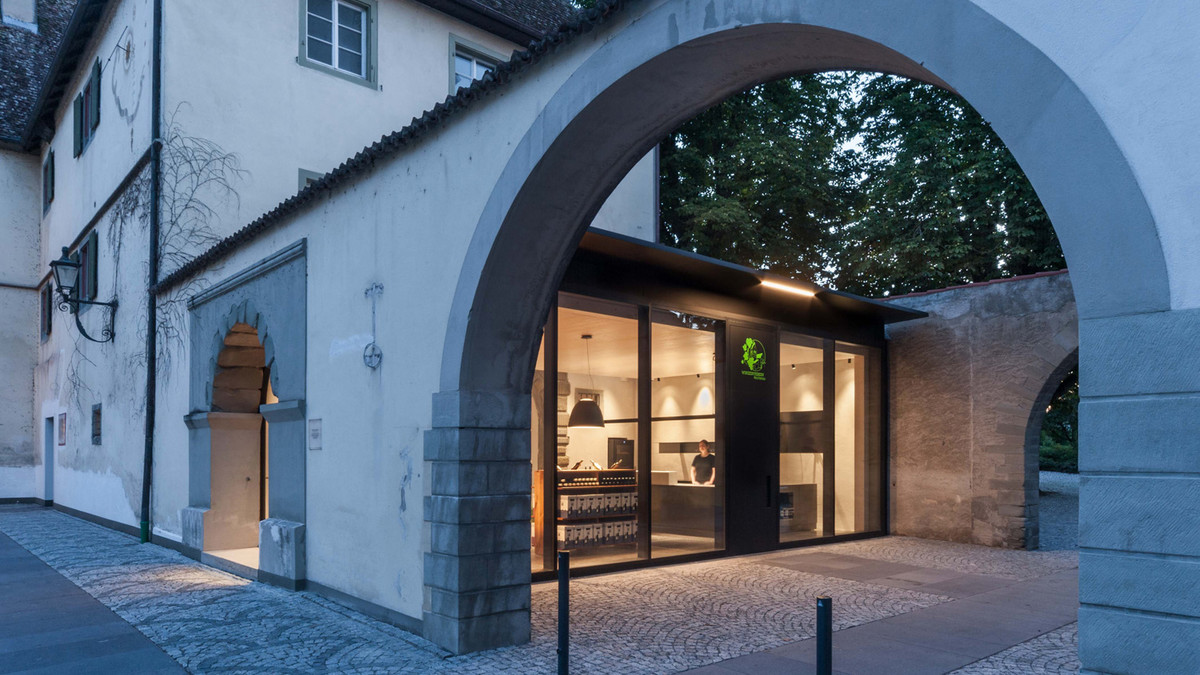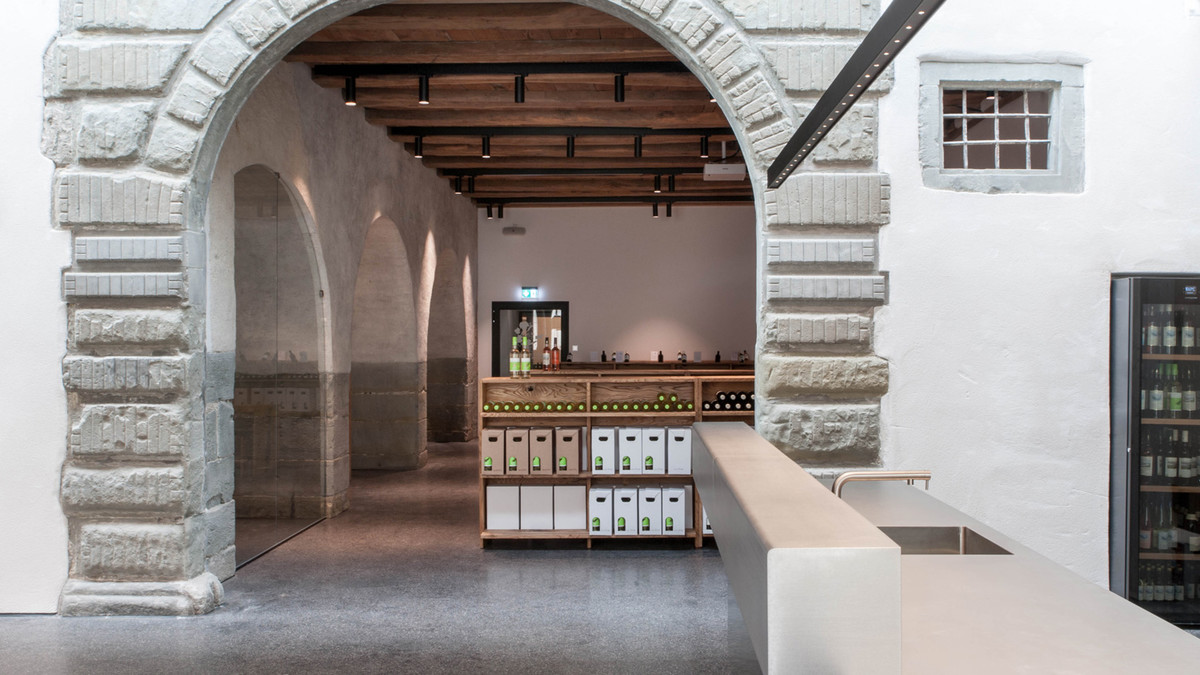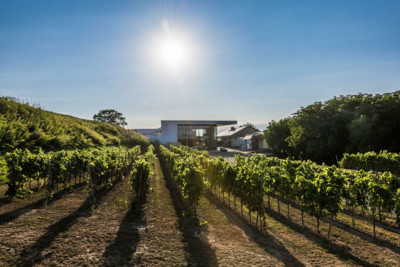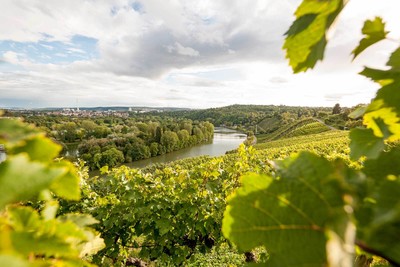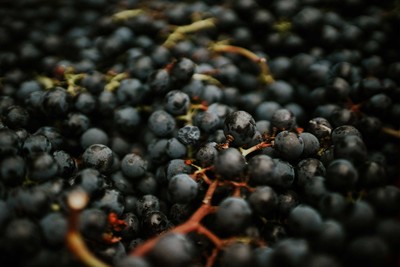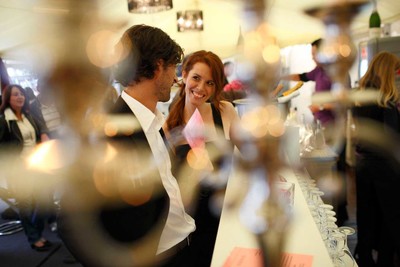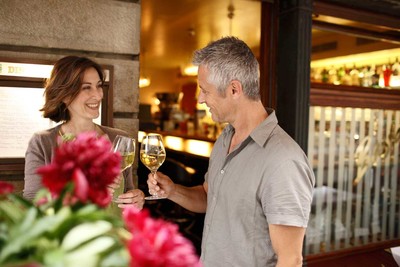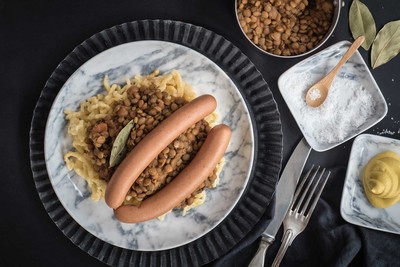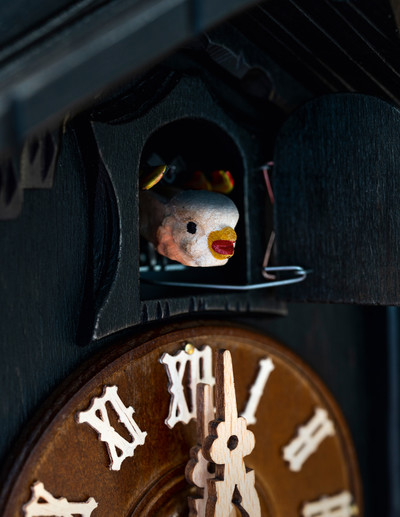Wine & Design in SouthWest Germany
Drink wine in a UNESCO World Heritage Site
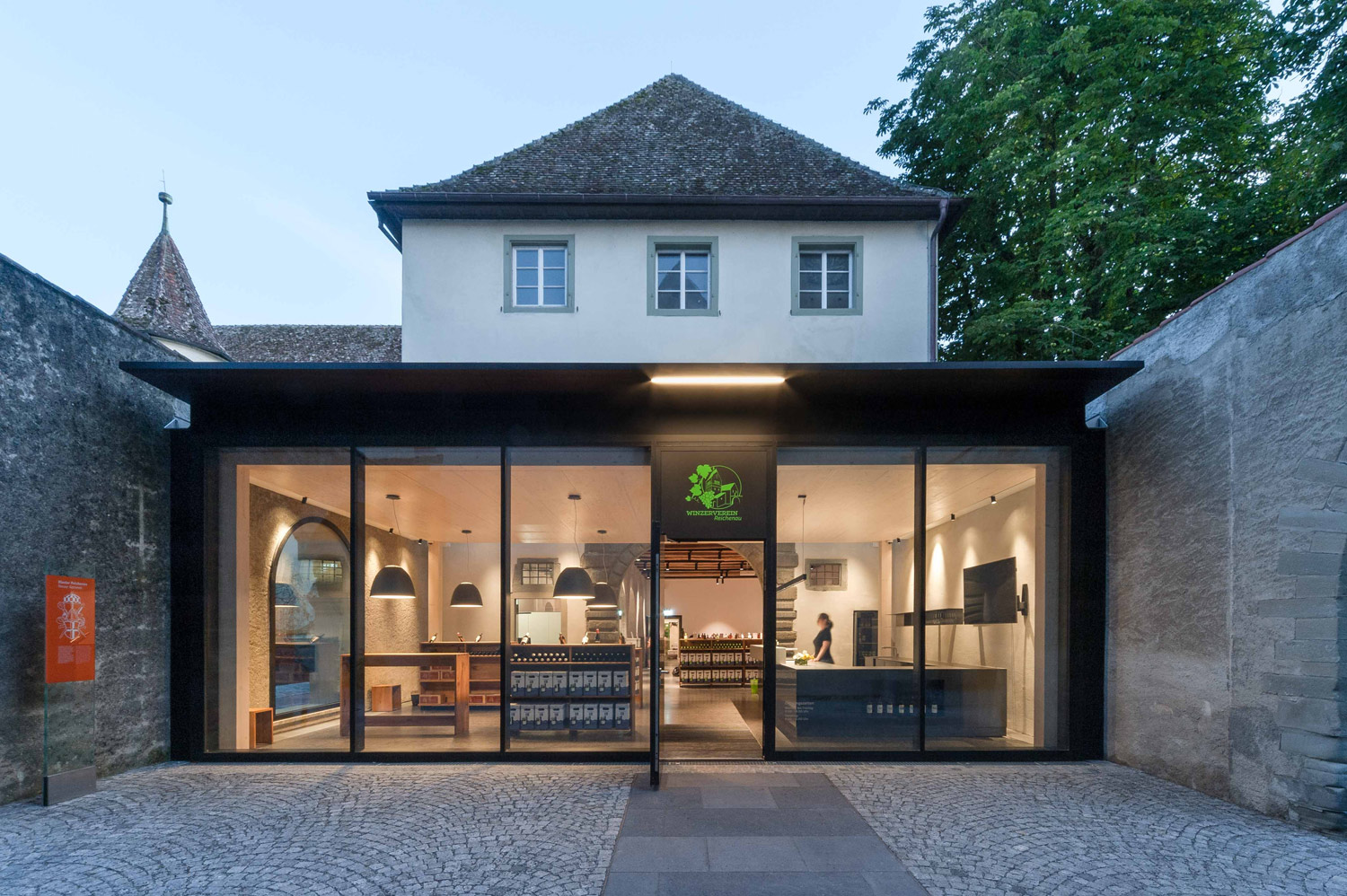

BW Story - Die Reiseschreiber
Island wine with a fascinating history
Sip a glass of wine and gaze through the picture window at a 1,200-year-old church. Old and new blend beautifully here at Reichenau Monastery. This complex, a UNESCO World Heritage Site, is on the island of Reichenau, on beautiful Lake Constance. What is new is the wine bar and shop run by the Reichenau Winegrowers' Association.
Built into the ancient walls, a floor-to-ceiling glass window tempts passers-by to pause and peer inside. Bottles are displayed on plain wooden shelves and tables. A long, modern counter stretches across one entire wall. At the far end is an old stone archway. The relaxed setting is illuminated by daylight pouring in through the skylight.
Through the arch is another room, where nothing is modern. Surrounded by 400-year-old walls, there are stone arches, pillars and a beamed ceiling: a wine bar that is truly unique.
No wonder it boasts a special seal of quality: Wine and Design (Weinsüden und Architektur). This is awarded by SouthWest Germany’s tourist board to wine bars (Vinotheken) that offer good wine in unusual settings.
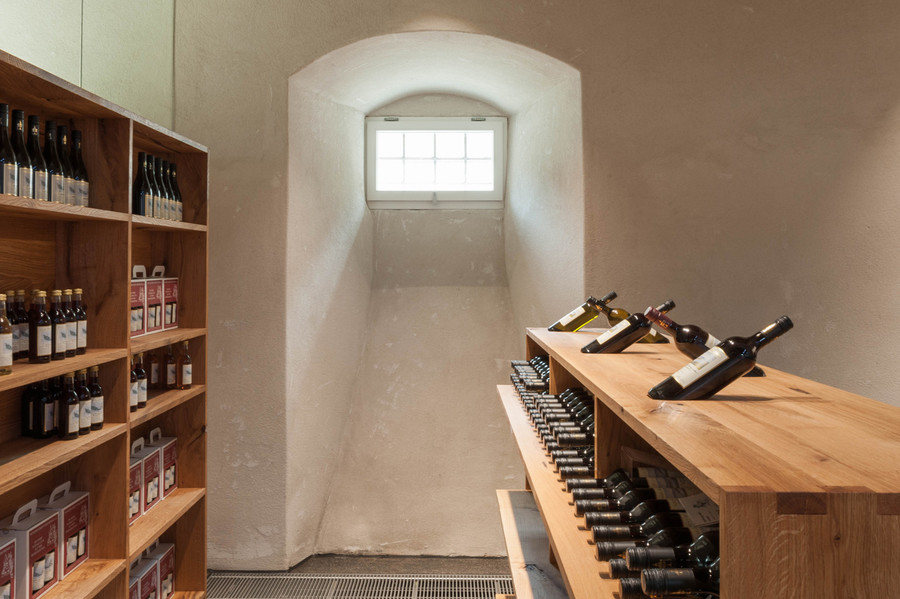
Wine bar in a UNESCO World Heritage Site
Opened in 2019 by the Reichenau Winegrowers' Association (Winzerverein Reichenau), this combination of wine bar and wine shop matches old and new. The result is pure harmony. And it is right next door to the church of St Mary and Mark in Mittelzell, one of the main sights on the island. The founding of Reichenau’s first Benedictine monastery back in the 8th century marked the start of an era when the island was one of Europe’s most important spiritual, scientific and artistic centres. With three Romanesque churches, Reichenau was added to the UNESCO World Heritage List in 2000. Since then, visitor numbers have increased dramatically.
Crushing grapes in the old
monastery cellar
Ever since it was founded a century ago, the Reichenau Winegrowers' Association has been based in the monastery. Members even pressed their grapes in the monastery’s ancient cellar. Although there was also a shop selling their wines, it was cramped and hidden away, with no room for tastings or special events.
Now, this new venue provides a space for growers and makers to show off their wines. Visitors can learn about, taste and, of course, buy the various wines produced on the island. This is important for the Winegrowers' Association, particularly as it is Baden’s smallest independent cooperative. As Manfred Krämer, manager of the Association, explains, they don’t have time to run an on-line business. In any case, they sell two-thirds of their wines over the counter – right here!
Vines grown here since the 9th century
West of the city of Konstanz, Reichenau enjoys a near-Mediterranean climate, ideal for horticulture. Back in the 9th century, Walafrid Strabo, the abbot of the monastery, planted a herb garden and described it in Hortulus, one of the most important botanical works of the Middle Ages. Written in the form of a poem, he notes the 23 herbs he grew, with their medicinal and health-giving qualities. That era also saw the planting of vines that were an important source of income. It was only in the 20th century that vines were replaced by fruit trees and vegetables; locals kept a few rows just for making wines for their own consumption.
In the past 20 years, however, grape-growing has made a comeback, with 21 hectares / 52 acres under vines. Some 60 winegrowers are now involved, and the cooperative employs a professional winemaker, Thomas Sättele. He decides when the grape harvest should begin and which grapes meet the standard needed for pressing quality wines.
Wines from the “Happy Island”
The main grape varieties are Müller-Thurgau and Grauburgunder (Pinot Gris), but the gentle climate also suits Gutedel (Chasselas) and Muskateller (Muscat). In the new wine bar, the Winegrowers' Association also offers a Pinot Noir, matured in barriques, small oak casks. This deep red wine is called Augia Felix in honour of Abbot Walafrid Strabo, who described Reichenau as "Insula felix, augia felix", his “beloved island, island of happiness”.
The Reichenau Winegrowers' Association wine bar/wine shop was awarded the Weinsüden und Architektur seal of approval by Baden’s architects, as well as the tourist board. Several other wine shops in Baden, all offering good wines and attractive architecture, also hold this Wine and Design accolade.

